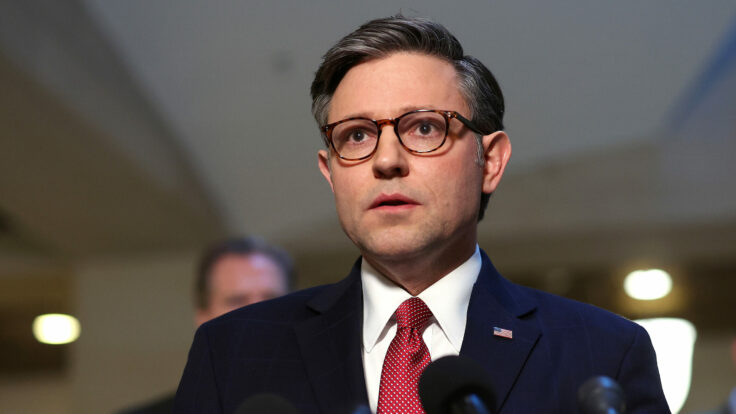Last Saturday, Mike Pence stepped onto the stage at the annual Gridiron Club dinner, in Washington, looking for an image makeover. The stiff, soft-spoken former vice president wanted to convince a ballroom of self-serious journalists, pompadoured TV hosts, and tux-clad politicos that he wasn’t merely a Donald Trump supplicant, but rather a bonafide conservative fighter, who was ready to attack his old boss. Sure, Pence has refused to testify about the events of Jan. 6, when a mob called for his lynching at the Capitol, and he has not cooperated with Special Counsel Jack Smith’s probe into Trump’s attempts to stay in power. But on Saturday night, his team was determined to take the inside chatter head on. Pence delivered a calculated attack on his former boss, saying “history will hold Donald Trump accountable for January 6,” and that he endangered his family.
It was a canny yet careful move deployed by his careful and calculating team, which has up until this point been steering Pence toward academic conclaves, policy institutes, religious centers and universities to highlight his wedge issues with Trump and Ron DeSantis. He chose the Clements School of Security, at the University of Texas, to draw a contrast with DeSantis on Ukraine; an appearance at the Federalist society to make a constitutional argument against Trump’s actions around Jan. 6; and, before that, a speech at the University of Chicago to defend his decision to brush off the congressional committee. (The Washington Post has a full rundown of these very deliberate moments, nearly all delivered to the inside crowd—the donors, the think tankers, and intellectuals.) Each of these forums have drawn student protests, giving him street cred with conservatives while shielding him from the MAGA pitchforks that might show up at, say, a homebuilders event in Iowa.

















